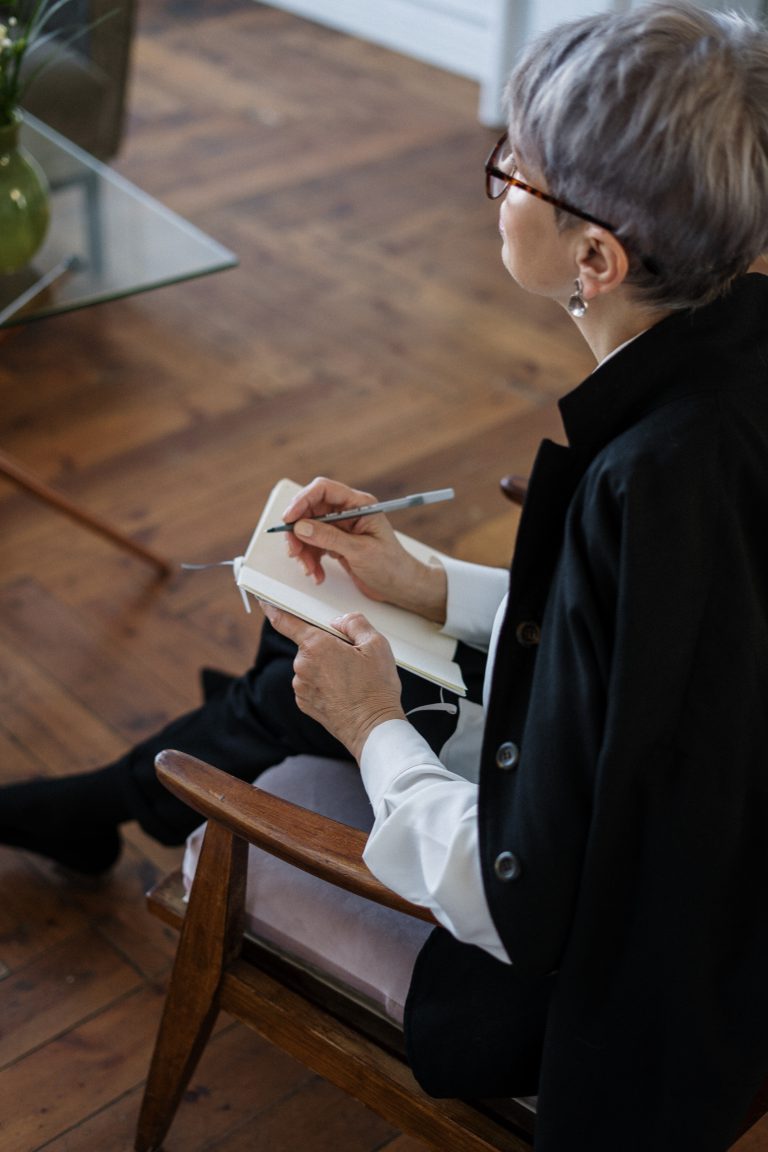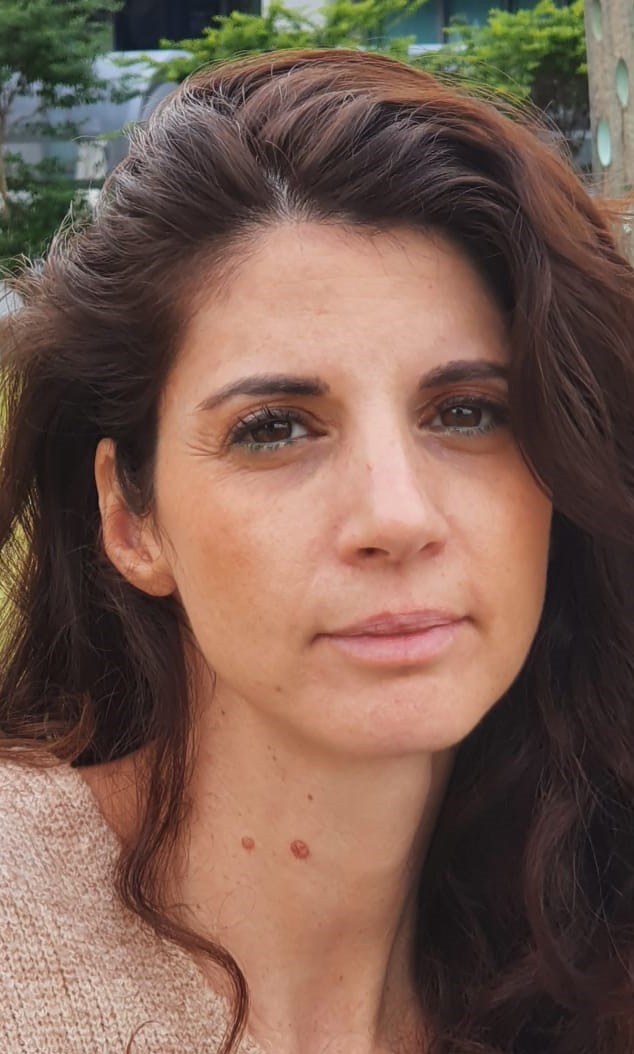My friend decided to run her first marathon in a city more than an hour away from her home. She spent the night at a hotel, so she could simply hop on one of the city’s electric scooters and glide over to the race – well-rested and stress-free. However, on marathon morning, she discovered that the municipality removed all of the scooters to keep the route clear, and she had to run more than eight kilometers just to get to the starting line. She arrived late, frazzled, and stressed, starting the biggest race of her life in a state of complete physical, emotional, and mental exhaustion.
For many of us who live with chronic pain, these feelings hit close to home. When you live in a state of constant physical pain, along with the impact on your mental health, relationships, professional life, and day to day existence, every day can feel like the biggest race of your life. As a mental health professional and a member of this club, I know that therapy can be an invaluable tool for those living with chronic pain. But when every day is a race, therapy is a grueling marathon, and for many people, it is extremely difficult to take that first step. What is holding back so many people from beginning a process that could give them the tools and support they are so desperately seeking?
Exhaustion
Like starting your first marathon after unexpectedly running eight kilometers, committing to therapy when you are already running on empty seems beyond impossible. Between treatments, pain management, doctors appointments, and the everyday demands of being a human, just showing up for life is hard enough. On top of all the physical elements, so many people living with chronic pain also face depression, anxiety, PTSD, loneliness and other mental health issues that stem from their complex reality. These struggles all have a significant impact on one’s physical health, emotional wellbeing, and practical functionality.
In such a situation, the thought of beginning therapy is incredibly daunting. Can I realistically fit another commitment into my schedule? Wouldn’t I be better off just taking a nap for an hour a week? Do I really have what it takes to give this process the respect it deserves? For so many people, the hesitation to commit to therapy comes down to a very real lack of physical and emotional reserves.
Doubt
Despite all of her training, skill, and willpower, my friend stood at the startling line sure that there was no way she would achieve her goal. “How could I possibly run a marathon in my current state? What’s the point of trying?” she thought to herself. When we decide not to take a step, we live within the illusion that we are in control of the outcome, regardless of what it is. Once we take that first step, we lose control. Who knows what will happen? When things don’t go as planned, the sense of failure and hopelessness can be devastating.
We all know how to muster up the energy when we really need or want to do something. For those of us living in chronic pain, this is a superpower that we utilize multiple times a day just to take care of our basic needs. However, we reserve our limited resources for things that we deeply desire, desperately need, or wholeheartedly believe in. After a lifetime of trying every single treatment and procedure available, taking yet another step in this exhausting healing journey is nothing to take lightly. We are disillusioned and frustrated, having spent a tremendous amount of money, time, and energy on ineffective treatments. How do I know that this time will be different? Cynical, skeptical, and drained, so many people living in chronic pain have lost the hope and optimism it takes to believe that life can be better tomorrow than it is today.
Fear
When my friend debated whether or not to run the marathon, it wasn’t just about whether or not she would be able to finish, it was also about what the challenge may reveal about her strength and abilities. At the end of the day, fear is one of the strongest emotions that we have, sometimes pushing us forward, and other times holding us back. If you take it seriously, beginning a therapy journey is terrifying. When we dare to look inside, we have no idea what we may uncover. Chronic pain is packed tightly between many layers of baggage, including complicated family dynamics, severe emotional trauma, disappointing relationships, and a complex personal identity.
Looking at all of this honestly demands tremendous courage and vulnerability. Once you discover the truth about yourself, your relationships, and your life circumstances, you can never unsee these realities. Plus, when it comes to deep, personal work, more often than not, things have to get worse before they can get better. Therapy does not heal our pain; it gives us the tools and insights we need to become people that can face our pain honestly and move through it in a healthy manner. It is natural to fear this process, and the fear often hides behind defense mechanisms, such as aggression, denial, or repression.
The first step
As my friend lingered at the starting line, her heart beating, tears in her eyes, and a lump in her throat, she wasn’t sure if she should take that first step. Everyone would have understood if she decided to walk away. A person cannot make a change until they feel ready for it. When we do something in a state of exhaustion, doubt, and fear, our chances of success are minimal. Our defenses shoot up, and we’ve lost the race before we even begin. Even if you know that therapy could help you, when you ask yourself whether or not now is the time, only you know the true answer. You have the right and obligation to listen to your inner voice and trust yourself. That being said, the gifts of therapy are boundless. Once you work through the heavy layers surrounding your pain, relationships, and identity, you have the opportunity to rebuild them all in a more healthy and intentional manner.
When the moment of truth came, my friend decided to run. She started a few minutes late, emotionally and physically drained and riddled with self-doubt. As she ran, she dug deep, gathering the internal energy she would need to keep putting one foot in front of the other, and she drew strength from those cheering her on from the sidelines. She may not have reached her time goal or realized her fantasy of crossing the finish line with a triumphant smile on her face, but she successfully ran her first marathon and learned a tremendous amount about herself along the way.
Unfortunately, when it comes to chronic pain and mental health, we often do not have the support of those around us. Without cheerleaders, it is hard to push ourselves to do something as heroic as begin therapy. That is why Live the Pain is built on a group therapy model, where the facilitators and participants are both the cheerleaders and support network. The people who get it; the exhaustion, the doubt, the fear – all of it. You have every reason to resist this process. If you decide you are not ready for it, we salute your honesty and bravery from afar. We know what it takes to get through each day. But if you decide you want to run the marathon, we are here for you every step of the way.





